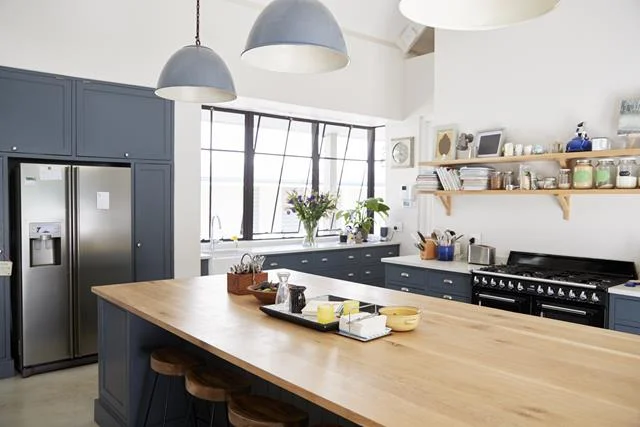Are you passionate about creating beautiful living spaces and transforming houses into homes? If so, you may be interested in pursuing a career as a professional home decorator.
In this article, we will explore the exciting world of professional home decorating, including the role and responsibilities of home decorators, the education and training requirements, developing a strong eye for design, building a portfolio, finding clients, managing a successful business, staying updated with trends and techniques, and tips for success and personal growth.
Professional home decorators play a crucial role in helping homeowners bring their design visions to life. They have the creative expertise to turn ordinary spaces into extraordinary ones, and they possess the skills necessary to understand their clients’ needs. Whether you’re considering starting a new career or simply want to enhance your knowledge in home decorating, this article will provide valuable insights into what it takes to become successful in this dynamic industry.
In the following sections, we will delve deeper into understanding the responsibilities of a professional home decorator, the education and training required to excel in this field, and how aspiring decorators can develop a keen eye for design and aesthetics. We will also discuss the importance of building a strong portfolio and gaining hands-on experience in order to stand out in the competitive industry of home decorating.
So if you’re ready to dive into the world of professional home decorating or simply seeking inspiration for enhancing your skills as a decorator, continue reading for valuable tips and guidance on achieving success in this exciting career path.
Understanding the Role and Responsibilities of a Professional Home Decorator
As a professional home decorator, it is important to have a clear understanding of the role and responsibilities that come with the job. Home decorators are tasked with transforming living spaces into aesthetically pleasing and functional environments for their clients. They work closely with clients to understand their needs, preferences, and budget in order to create personalized designs that reflect the client’s individual style.
Creating Functional and Aesthetically Pleasing Spaces
One of the primary responsibilities of a professional home decorator is to create functional and aesthetically pleasing spaces for their clients. This involves understanding how people use their living spaces, such as kitchens, bedrooms, and living rooms, and creating designs that enhance usability while also being visually appealing.
Collaborating With Clients
A key aspect of being a professional home decorator is the ability to collaborate effectively with clients. This includes listening to their ideas and preferences, providing expert advice on design choices, and ultimately bringing the client’s vision to life in their home. Effective communication skills are crucial in order to build trust and ensure client satisfaction.
Staying Updated With Design Trends
In addition to creating functional and beautiful spaces, professional home decorators must stay updated with the latest design trends and techniques. This involves attending trade shows, workshops, and networking events within the industry in order to keep abreast of new materials, styles, and technologies. By staying informed about current trends, decorators can offer fresh ideas and solutions to their clients while maintaining relevance in the industry.
Becoming a successful professional home decorator requires a combination of creativity, technical skill, business acumen, and strong interpersonal abilities. Understanding these role responsibilities is essential for those aspiring to enter this exciting field.
Education and Training Requirements for Aspiring Home Decorators
When it comes to pursuing a career as a professional home decorator, having the right education and training is essential. Many aspiring home decorators choose to enroll in interior design programs offered by colleges, universities, or design schools. These programs provide a strong foundation in design theory, color theory, space planning, and other essential skills needed for the profession.
Formal Education
A formal education in interior design or home decorating can provide aspiring professionals with the technical knowledge and practical skills needed to succeed in the industry. These programs often include courses in textiles, furniture design, lighting, and computer-aided design (CAD) software. Additionally, some programs may offer specialized courses in residential design or home staging.
Hands-on Training
In addition to formal education, gaining hands-on experience through internships or apprenticeships can be invaluable for aspiring home decorators. Working alongside experienced professionals can provide insight into the day-to-day responsibilities of the job and help develop practical skills that are not always taught in a classroom setting.
Certification and Licensing
While certification and licensing requirements for home decorators vary by location, obtaining professional certification from reputable organizations can demonstrate a high level of expertise and credibility to potential clients. Some decorators choose to pursue additional certifications in areas such as color consulting or sustainable design to further enhance their credentials.
Overall, investing time and effort into obtaining the right education and training is crucial for those looking to establish themselves as professional home decorators. By combining formal education with hands-on experience and relevant certifications, individuals can position themselves for success in this competitive field.
Developing a Strong Eye for Design and Aesthetics
Aspiring home decorators must possess a strong eye for design and aesthetics in order to succeed in this competitive industry. Having a keen understanding of color, form, texture, and space is essential in creating beautiful and functional living spaces for clients. Here are some tips on how to cultivate your design sensibilities:
- Study design principles: Familiarize yourself with the basic principles of design such as balance, harmony, contrast, rhythm, and proportion. Understanding these principles will serve as the foundation for your creative process.
- Stay updated with trends: Keep yourself informed about the latest interior design trends by following relevant magazines, blogs, and social media accounts. Attend trade shows and exhibitions to gain inspiration and insights into emerging styles.
- Practice observation: Train yourself to observe the details of your surroundings. Pay attention to architecture, nature, art, and everyday objects. By observing closely, you can develop a deeper appreciation for design elements.
By honing your ability to recognize good design and cultivating your own personal style, you can position yourself as a reputable professional home decorator that clients trust with their interior décor needs.
In addition to having an eye for design, aspiring home decorators should also prioritize continuous learning in order to refine their skills and stay updated with industry standards. Through dedication and practice, individuals can set themselves apart in this dynamic field of artistic expression.
Overall, becoming a professional home decorator requires a commitment to developing creative vision while staying current with industry trends. With the right training and dedication to honing one’s skills over time – leveraging resources such as formal education programs or hands-on experience – you can become well-equipped to succeed in this rewarding career path.
Building a Portfolio and Gaining Experience in the Field
Aspiring professional home decorators often start by gaining experience and building a portfolio to showcase their skills and expertise in the field. Building a strong portfolio is essential for attracting potential clients and showcasing your ability to transform living spaces into beautiful and functional environments. Here are some steps on how to effectively build a portfolio and gain experience as a home decorator:
1. Take on small projects: Start by taking on small decorating projects for friends, family members, or even local community organizations. This will allow you to practice your skills, receive feedback, and start building a portfolio of your work.
2. Volunteer or intern with established decorators: Another way to gain valuable experience is by volunteering or interning with experienced home decorators. This hands-on experience will provide insight into the day-to-day responsibilities of the job and allow you to learn from seasoned professionals in the industry.
3. Document your work: As you complete decorating projects, be sure to document them thoroughly with high-quality photographs. These images can be used to create a visually appealing portfolio that showcases your talent and style as a home decorator.
By gaining practical experience and creating an impressive portfolio, aspiring home decorators can demonstrate their capabilities to potential clients, ultimately paving the way for a successful career in professional home decorating.
Networking and Finding Clients as a Professional Home Decorator
Once you have the education, training, and experience required to become a professional home decorator, the next step is to start building a client base. Networking is a crucial aspect of establishing yourself in this industry. Attending industry events, joining professional organizations, and connecting with other professionals in related fields can help you expand your contacts and potentially find clients.
Another effective way to find clients as a professional home decorator is to create an online presence. Building a website or portfolio showcasing your work, as well as maintaining active social media profiles on platforms like Instagram and Pinterest, can help potential clients discover your services and style. Utilizing these online platforms can also help you connect with individuals who may be seeking your expertise.
It’s also important to consider traditional marketing methods such as print advertising, as well as collaborations with local businesses in the home improvement sector. By actively promoting your services through various channels, you increase the likelihood of finding clients who are in need of professional home decorating services.
| Networking Strategies | Finding Clients Tactics |
|---|---|
| Attend industry events | Create an online presence |
| Join professional organizations | Utilize social media platforms |
| Connect with other professionals | Consider traditional marketing methods |
By implementing these strategies and tactics for networking and finding clients, aspiring home decorators can increase their chances of success in this competitive industry.
Managing a Successful Business as a Home Decorator
Once you have gained the necessary education, training, and experience to become a professional home decorator, it is important to understand how to manage a successful business in this field. As a home decorator, you may choose to work independently or be part of a larger design firm. Either way, managing your business effectively is crucial for long-term success.
One of the key aspects of managing a successful home decorating business is creating and maintaining strong client relationships. This involves effective communication, understanding your clients’ needs and preferences, and delivering exceptional results that exceed their expectations. Building a positive reputation through word-of-mouth referrals can greatly contribute to the growth of your business.
Additionally, it is important to develop strong organizational and time management skills when running a home decorating business. This includes keeping track of project deadlines, budgets, and client meetings, as well as managing the administrative tasks that come with owning a business. Utilizing project management tools and software can help streamline these processes and keep your business running smoothly.
Finally, marketing and promoting your home decorating services is essential for attracting new clients and growing your business. This may involve creating a professional website and social media presence to showcase your work, networking within the industry, and even collaborating with other professionals such as real estate agents or contractors. By implementing effective marketing strategies, you can ensure a steady flow of clients and projects for your home decorating business.
In order to truly thrive as a professional home decorator running her own business, it’s important to stay updated with trends in design through ongoing education that hones not only design skills but expertise in areas like finance or project management.In addition,your commitment towards delivering exceptional results will not only build upon existing relationships but garner several potential future projects as well.
Continuing Education and Staying Updated With Trends and Techniques
As a professional home decorator, it’s crucial to stay updated with the latest trends, techniques, and technologies in the industry. This ensures that you continue to provide high-quality services to your clients and remain competitive in the market. One way to do this is by pursuing continuing education courses or workshops that focus on interior design, color theory, furniture trends, and sustainability in home decor.
Another excellent way to stay updated is by attending trade shows, design conferences, and industry events. These gatherings provide an opportunity to network with other professionals in the field, learn about new products and materials, and gain insight into upcoming trends. Additionally, subscribing to industry publications and following influential home decor blogs and social media accounts can help you stay informed about the latest developments in the industry.
It’s also important to seek feedback from clients and peers about your work. Understanding what works well for your clients and staying open to constructive criticism can help you refine your skills as a professional home decorator. By continuously seeking new knowledge and staying current with the latest trends and techniques in home decoration, you can elevate your career in the field.
| Benefits of Continuing Education | Staying Updated With Trends |
|---|---|
| Enhances skills and knowledge | Attending trade shows and industry events |
| Keeps you competitive in the market | Subscribing to industry publications |
| Positions you as an expert in the field | Seeking feedback from clients |
Tips for Success and Personal Growth as a Professional Home Decorator
Aspiring to become a professional home decorator is an exciting career path that offers the opportunity to unleash your creativity and transform living spaces. However, it’s important to recognize that success in this field requires more than just a keen eye for design. It demands dedication, continuous learning, networking, and an entrepreneurial mindset. By following the tips for success and personal growth as a professional home decorator, you can set yourself on the right track towards achieving your goals.

One of the most crucial aspects of becoming a successful home decorator is to never stop learning. The world of interior design and decorating is constantly evolving, with new trends, techniques, and technologies emerging all the time. By staying updated with the latest industry developments through workshops, courses, and seminars, you can ensure that your skills remain competitive in the market.
Networking is another vital factor in growing your career as a professional home decorator. Building relationships with suppliers, other industry professionals, and potential clients can open doors to new opportunities and collaborations. Attending industry events and joining professional organizations can help you expand your network and gain valuable insights into the business side of home decorating.
Additionally, always remember that personal growth plays a significant role in achieving success as a professional home decorator. Embrace challenges as learning opportunities, seek mentorship from experienced decorators, and be open to feedback from clients.
Cultivating a growth mindset will not only enhance your skills but also contribute to your overall career satisfaction and fulfillment. By following these tips and maintaining a steadfast commitment to excellence in your craft, you can certainly pave the way towards becoming a highly successful professional home decorator.
Frequently Asked Questions
How Do I Start a Career as a Decorator?
To start a career as a decorator, consider enrolling in interior design or decorating courses to gain the necessary knowledge and skills. Building a portfolio of your work, gaining experience through internships or entry-level positions, and networking within the industry are also crucial steps towards starting a successful career as a decorator.
How Do I Get Into Home Decorating?
Getting into home decorating can begin with developing a strong understanding of design principles, color theory, and spatial planning. Gain practical experience by working on personal projects or helping friends and family with home decorating. Additionally, seeking out mentorship opportunities or part-time work with established decorators can provide valuable insights and connections within the field.
Is an Interior Decorator Certificate Worth It?
Obtaining an interior decorator certificate can be worth it for individuals looking to formalize their training, enhance their credibility, and gain a competitive edge in the job market. The certificate may also provide valuable education and training that can lead to improved job opportunities and higher earning potential in the field of interior decorating.
However, it’s important to carefully research programs to ensure they are reputable and aligned with personal career goals before pursuing certification.

Hello, lovely readers! I’m Sheila Collins, and I’m delighted to be your trusted guide on this exciting journey of home improvement, design, and lifestyle. As the founder and editor-in-chief of Home Guide Blog, I’m passionate about all things related to homes, and I’m here to share my knowledge, experiences, and insights with you.





